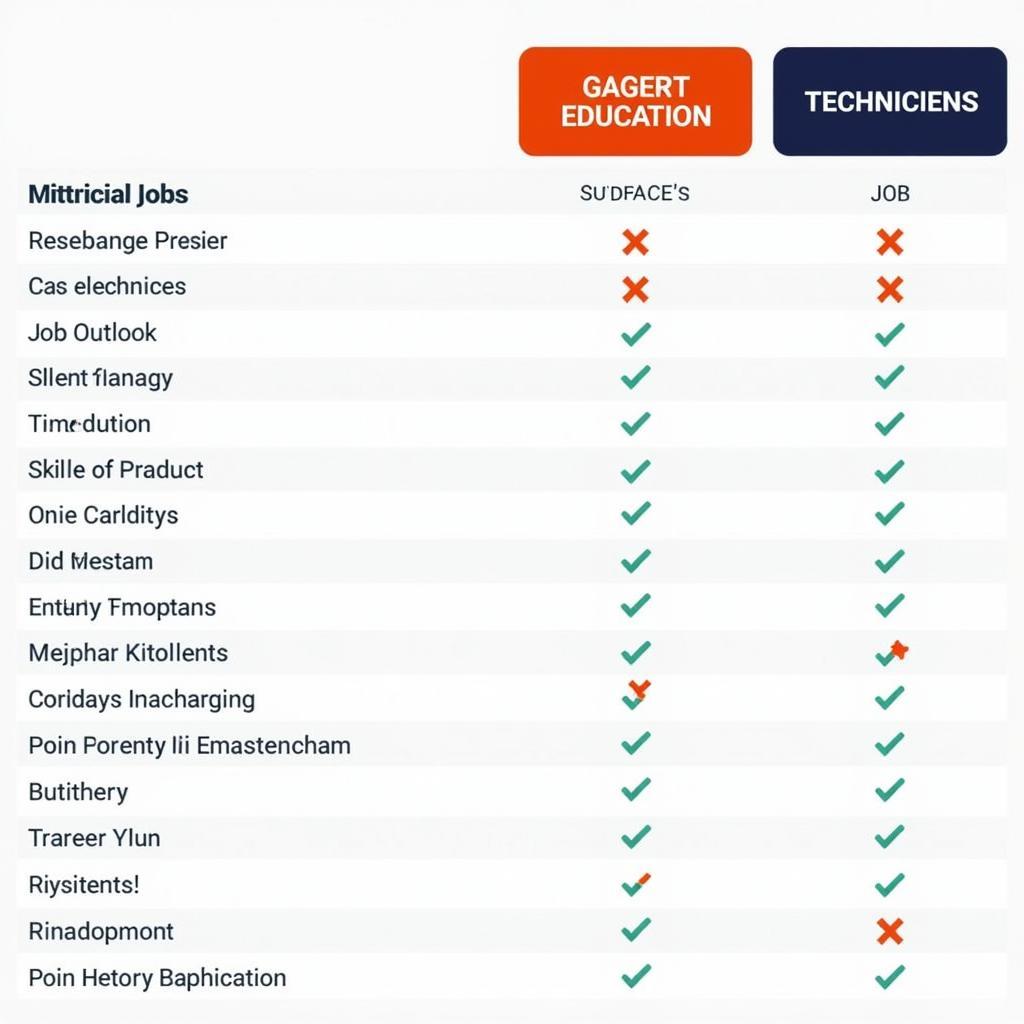Electricians and technicians are both skilled professionals in their respective fields, often dealing with electrical systems. However, their roles, training, and specializations differ significantly. This article will delve into the nuances of each profession, helping you understand the key distinctions between an electrician vs. technician.
Wiring the World: The Electrician’s Role
Electricians primarily focus on the installation, maintenance, and repair of electrical power systems. This can range from wiring a new house to troubleshooting electrical problems in a factory. Their work is governed by strict safety regulations and requires a deep understanding of electrical codes and standards. They work with various tools and equipment, ensuring the safe and efficient flow of electricity in residential, commercial, and industrial settings.
- Install and maintain wiring, control, and lighting systems.
- Inspect electrical components, such as transformers and circuit breakers.
- Identify and repair electrical problems.
- Read and interpret blueprints and technical diagrams.
Beyond the Wires: The Technician’s Diverse World
The term “technician” encompasses a broader range of specializations, including electronics, telecommunications, computer hardware, and more. While some technicians may work with electrical systems, their focus often lies in the maintenance, repair, and troubleshooting of specific equipment or technologies. For instance, an electronics technician might repair circuit boards, while a telecommunications technician could install and maintain fiber optic cables.
- Diagnose and repair malfunctions in electronic equipment.
- Install and maintain specialized systems and equipment.
- Calibrate and test electronic instruments.
- Provide technical support and training to users.
Electrician vs. Technician: Head-to-Head Comparison
While both professions share some common ground, the core responsibilities and required skillsets differ. Electricians are specialists in electrical power systems, while technicians have a broader scope, focusing on specific equipment or technologies. Choosing between the two careers depends on your interests and aptitude.
Education and Training Requirements
- Electricians: Typically require a combination of classroom instruction and on-the-job training through apprenticeships. Licensing requirements vary by location.
- Technicians: Often require an associate’s degree or vocational training in their specific field. Certifications may also be required for certain specializations.
Key Skills
- Electricians: Strong knowledge of electrical codes, safety regulations, wiring techniques, and troubleshooting.
- Technicians: Expertise in electronics, computer hardware, telecommunications, or other specialized areas, including diagnostic and repair skills.
 So sánh điện và kỹ thuật viên
So sánh điện và kỹ thuật viên
Making the Right Choice: Your Future in Electrical and Technical Fields
Understanding the difference between electrician vs. technician is crucial for anyone considering a career in these fields. Both professions offer rewarding opportunities, contributing to various industries and technological advancements. Your choice ultimately depends on your passion and career goals.
FAQ
- What is the main difference between an electrician and a technician? Electricians specialize in electrical power systems, while technicians focus on specific equipment or technologies.
- Do technicians work with electricity? Some technicians work with electrical systems, but their primary focus is on specific equipment.
- What kind of education is required to become an electrician? Electricians usually require an apprenticeship and licensing.
- What are the career prospects for electricians and technicians? Both professions offer good job outlook with increasing demand for skilled professionals.
- Which profession pays more? Salaries vary depending on experience and specialization, but both can offer competitive wages.
- What are the typical work environments for these professions? Electricians can work in various settings, including construction sites and industrial facilities, while technicians often work in labs, offices, or repair shops.
- Is it possible to transition from electrician to technician or vice-versa? While possible, it requires additional training and certifications in the desired specialization.
Gợi ý các câu hỏi khác, bài viết khác có trong web.
- Sự khác biệt giữa kỹ sư điện và kỹ thuật viên điện là gì?
- Làm thế nào để trở thành một thợ điện?
- Nghề kỹ thuật viên có tương lai không?